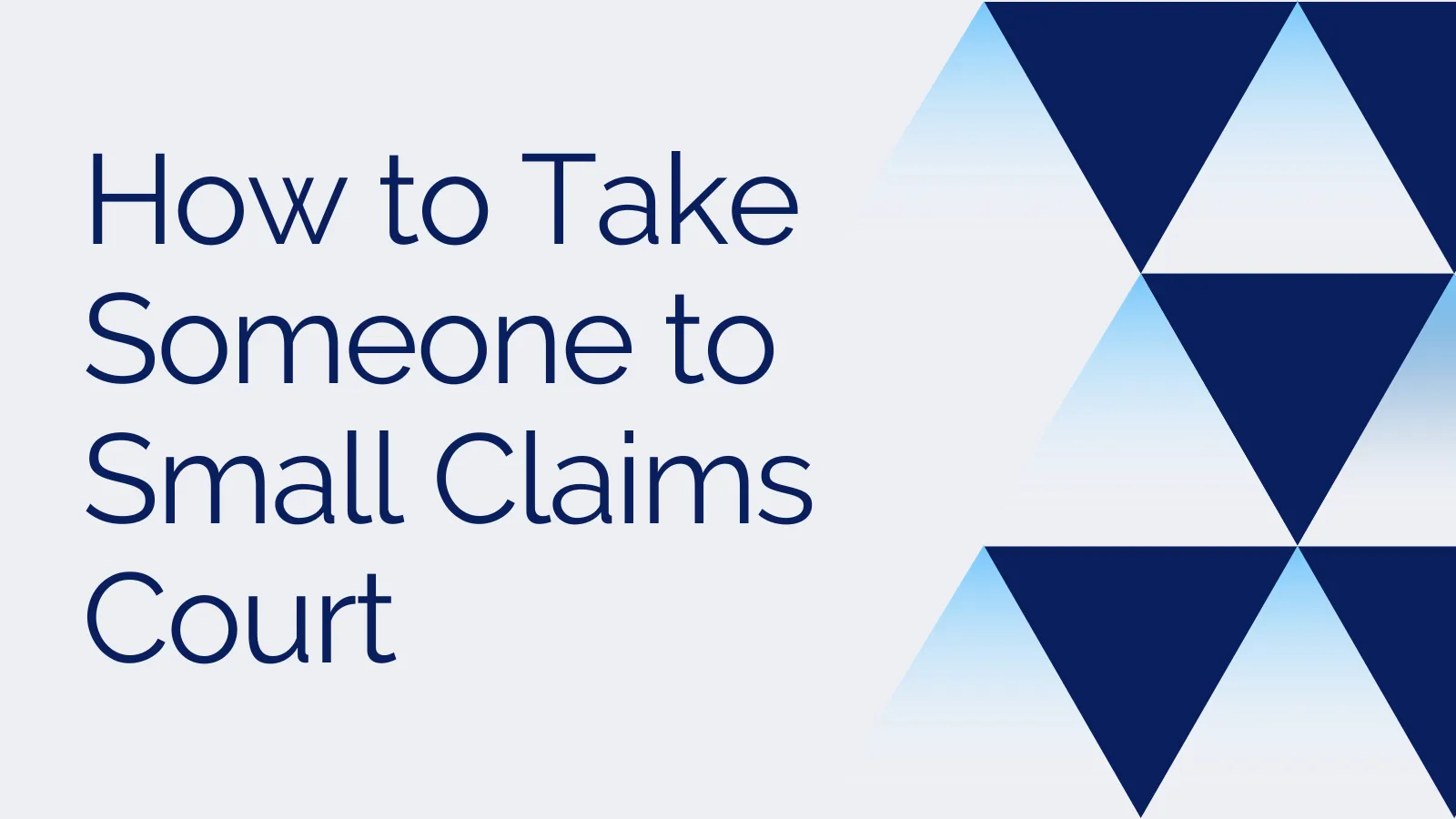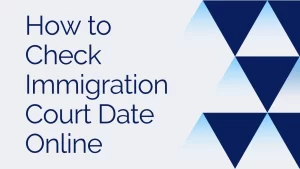How to Take Someone to Small Claims Court
Understanding What is Small Claims Court?
Small claims courts resolve minor civil disputes. There are no juries, and cases are decided by a judge or magistrate. The rules of evidence are relaxed and legal representation is not required. The purpose of small claims court is to provide citizens with an accessible and affordable option for legal recourse without having to hire lawyers or navigate complex procedures.
The small claims court process is fairly straightforward. The plaintiff files a claim and pays a small filing fee. Both parties appear before the judge on the hearing date and present their sides. The judge then decides the case based on the evidence. If the plaintiff wins, the losing party must pay the judgment. But there are limits on how much money can be recovered in small claims court, usually between $2,500 to $15,000 depending on the state.
How to Sue Someone in Small Claims Court
If you find yourself in a situation where you need to take legal action against someone for a relatively small monetary dispute, small claims court can be an efficient and cost-effective option. Small claims court is designed to handle cases involving relatively small amounts of money, making it accessible for individuals and small businesses seeking to resolve disputes. In this guide, we will walk you through the steps on how to sue someone in small claims court, covering everything from the initial filing to understanding the limitations and costs involved.
If you have a dispute with someone that you cannot resolve through negotiation, taking them to small claims court may be the best option for you. Small claims court is a legal venue where disputes involving small amounts of money can be resolved quickly and inexpensively. In this article, we will provide you with a comprehensive guide on how to take someone to small claims court.
Determine If Small Claims Court is Right for You
Before taking someone to small claims court, it’s essential to determine if it’s the right venue for your dispute. Small claims court is best suited for disputes involving small amounts of money and straightforward legal issues. Complex legal disputes or cases that involve significant amounts of money may require more formal legal proceedings. It’s important to remember that even if you win your case in small claims court, collecting your judgment may be challenging.
Research Your Case
Before filing a claim in small claims court, it’s essential to do your research. You need to gather all the necessary documents, including receipts, contracts, and correspondence related to your dispute. You should also review the relevant laws and regulations that apply to your case. Doing your research will help you build a compelling case and increase your chances of success.
how long does small claims court take
The duration of small claims court cases can vary depending on several factors, but in general, the majority of cases typically take 2 to 3 months to complete. Here’s a breakdown of the timeline:
- Filing the Lawsuit: After filing a small claims lawsuit, the court will schedule a hearing. This scheduling process usually takes place shortly after the lawsuit is filed, typically within 30 to 75 days.
- Hearing: The actual hearing is where both parties present their arguments and evidence. This stage occurs within the timeframe mentioned above, depending on court availability and scheduling.
- Judgment: After the hearing, the judge will make a decision. In many cases, judges render their decisions relatively quickly, typically within 7 to 14 days after the hearing.
how does small claims court work
Filing as the Plaintiff
To initiate a small claims court case, you will assume the role of the Plaintiff. As the Plaintiff, it is your responsibility to file a formal complaint against the person or entity you are suing, known as the Defendant. Here’s how you can get started:
- Complete SC-100 Plaintiff’s Claim Form: Begin by filling out the SC-100 Plaintiff’s Claim form. This form serves as the foundation of your case, detailing the nature of your complaint and the amount you are seeking.
- File with the Court Clerk: Once you have completed the form, submit it to the court clerk. This step officially commences your legal action.
Accurate Defendant Identification
It is crucial to ensure that you correctly identify the Defendant in your claim. Any inaccuracies in naming the Defendant could potentially hinder your ability to collect a judgment.
how much does small claims court cost
Determining the Maximum Amount
The amount you can sue for in small claims court varies depending on whether you are an individual or a business:
- Individual or individual-owned business: You can file up to two cases each calendar year for as much as $10,000. For additional cases within the same year, the limit is $2,500 or less for each.
- Other businesses (e.g., partnerships, LLCs, LPs, or corporations): These entities can also file two cases each year, but the limit is $5,000 per case. Additional cases in the same calendar year are capped at $2,500 or less.
- Government agencies: Government agencies are limited to $5,000 per case, with no restrictions on the number of cases they can file.
Limits on Multiple Cases
It’s essential to note that you cannot sue for more than the maximum limit allowed. Attempting to split your claim into two cases to meet the limit is not permissible.
Timely Filing of Your Case
Small claims court has specific time limits for filing cases:
- Written contract disputes: Four years from the date the contract was breached.
- Oral contract disputes: Two years from the date the contract was breached.
- Personal injury claims: Two years from the date of injury or from the date you discovered the injury.
- Property damage claims: Three years from the date the damage occurred.
- Fraud claims: Three years from the date you discovered the fraud.
Choosing the Right Court
You can file your small claims court case at the court nearest to various locations, including where the contract was signed, where the Defendant resides, where the business is located, or where the injury or damage occurred. Ensuring you choose the correct court location is vital for the success of your case.
Understanding Filing Fees
The filing fee for your small claims court case is determined by the amount you are claiming:
- $30 for claims up to $1,500.
- $50 for claims between $1,500.01 and $5,000.
- $75 for claims between $5,000.01 and $10,000.
Frequency of Filing
You can file up to two claims exceeding $2,500 in a calendar year. However, for claims under $2,500, there is no limit, and you can file as many as needed. Keep in mind that filing more than 12 claims in a calendar year will incur a $100 fee for each additional case.
File Your Claim
Once you’ve filled out your claim form, you need to file it with the small claims court clerk. You will need to pay a filing fee, which varies depending on the jurisdiction. Once you’ve filed your claim, the court will set a hearing date, and you will be notified of the date and time of your hearing.
Serve the Defendant
After you’ve filed your claim, you need to serve the defendant with a copy of your claim form and notice of the hearing. You can usually serve the defendant in person or by mail. It’s important to follow the proper procedures for serving the defendant, as failure to do so can result in your case being dismissed.
Prepare for Your Hearing
Before your hearing, you should prepare your case thoroughly. Review all the relevant documents and evidence and practice presenting your case. You should also prepare for any questions the judge may ask you. It’s important to be organized and confident when presenting your case.
Attend Your Hearing
On the day of your hearing, make sure to arrive early and dress appropriately. Bring all the necessary documents and evidence with you, including copies for the judge and the defendant. During the hearing, the judge will listen to both sides and make a decision based on the evidence presented. Be respectful and courteous to the judge and the defendant, and follow the judge’s instructions.
how long do you have to take someone to small claims court
Every civil claim is subject to a statute of limitations – a legal time limit for initiating a lawsuit. The period begins when the cause of action accrues, meaning when the plaintiff is first able to sue. The timeframe varies based on the type of claim involved. Exceeding the statute of limitations will result in dismissal of the claim.
Statute of Limitations
A statute of limitations establishes a deadline for taking legal action. Once the period ends, the claim is barred and cannot be pursued. The policy goal is to encourage prompt resolution of disputes and prevent prejudice against defendants from late filings when evidence may be lost. Statutes of limitations also promote judicial efficiency.
what kind of damages can you sue for in small claims court
Types of Claims and Time Limits
in small claims court, individuals typically sue for relatively small amounts of money and handle cases without the need for expensive legal representation. The specific types of damages you can sue for in small claims court may vary depending on your jurisdiction, but common types of damages that can be pursued in small claims court include:
- Unpaid Debts: You can sue to collect money owed to you, such as unpaid loans, unpaid rent, or unpaid invoices for goods or services.
- Property Damage: If someone damages your property, you can sue for the cost of repairs or replacement.
- Security Deposit Disputes: If you’re a tenant, you can sue your landlord for the return of your security deposit if you believe it was wrongfully withheld.
- Contract Disputes: You can sue if someone breaches a contract you have with them, and you can demonstrate that you suffered financial harm as a result.
- Personal Injury: In some cases, if you’ve suffered minor injuries due to someone’s negligence (like a car accident with minor injuries), you may be able to sue for medical expenses and related costs.
- Landlord-Tenant Disputes: Landlords and tenants can sue each other over issues like unpaid rent, property damage, or violations of the lease agreement.
- Consumer Complaints: If you purchase a defective product or receive subpar services, you can sue for a refund or compensation.
- Employment Issues: If your employer owes you unpaid wages or if you believe you were wrongfully terminated, you may be able to sue for back pay or compensation.
- Trespassing: If someone trespasses on your property and causes damage or harm, you can seek compensation for the damages.
- Nuisance: If someone’s actions or property use interfere with your right to quiet enjoyment of your property, you may be able to sue for damages.
- Small Claims for Legal Fees: In some jurisdictions, you can sue for the costs associated with bringing the case to small claims court, such as filing fees and service of process fees.
- Contract Claims Breach of contract claims often have a limitation period of 3-6 years. The timeframe runs from the date of contract breach. Written contracts may have longer limits than oral contracts.
How Much You Can Sue for Emotional Distress in Small Claims Court
Emotional distress is a form of mental suffering or anguish that arises from an incident of negligence or intent. Courts acknowledge emotional distress as a valid type of damage that can be recovered through a civil lawsuit. In other words, if you can provide evidence to support your claims, you can sue someone for emotional trauma or distress.
Most emotional distress claims traditionally required the victim to have suffered physical harm as a direct result of the incident. However, recent legal developments have allowed for victims to seek emotional distress damages even without concrete evidence of physical harm. Depending on the case, the psychological and emotional trauma alone, stemming from incidents like sexual abuse or defamation, can be sufficient grounds for an emotional distress claim.
How to Sue for Emotional Distress
- Document Your Distress: To strengthen your case, it’s crucial to document your emotional distress. This may include medical records, work-related documents, a personal journal detailing your emotions, and any electronic health tracking data, such as heart rate and sleep patterns. The more comprehensive your documentation, the better your chances of recovering damages.
- Consult with an Attorney: Discuss your case with an experienced attorney. Your attorney will review your documents and help you prepare for legal action.
- File a Lawsuit: With the assistance of your attorney, you’ll initiate an emotional distress lawsuit against the defendant.
- Pre-trial Preparations: After the defendant is served, the discovery process will begin, involving the exchange of information between both parties. There’s a possibility that the two parties may reach a settlement offer to avoid going to trial. Your attorney will advise you on whether to accept the settlement deal.
- Trial & Settlement: The court will hear arguments and review evidence presented by both sides before making a decision.
- It’s important to note that suing someone for emotional distress can be a lengthy and challenging journey. To maximize your chances of recovering damages, equip yourself with a solid understanding of how the process works and consult with a seasoned attorney.
Gathering Evidence for Your Emotional Distress Claim
The availability of evidence plays a pivotal role in determining whether you can successfully sue someone for emotional distress. If you plan to sue for stress or other mental suffering, you must substantiate that you have indeed endured emotional distress. Here are some examples of evidence that can strengthen your claim:
- Physical Injuries: Physical injuries resulting from the incident can be relatively easy to identify. Conditions such as ulcers, cognitive impairment, and headaches can serve as indicators of emotional distress.
- Time: The longer you’ve experienced distress, the more credible your case becomes.
- Medical Reports: A report from a medical professional, such as a doctor or psychologist, carries significant weight in demonstrating emotional distress. It’s imperative to seek medical attention immediately after the incident to support your case.
- Severity of the Initial Incident: The more extreme and disturbing the initial incident, the more likely the courts will rule in favor of emotional distress.
- Testimonies: Testimonies from individuals who can attest to how the incident impacted your life can be crucial. Family members, friends, doctors, or co-workers can provide valuable testimony.
Monetary Limits in Small Claims Court
The maximum amount you can sue for emotional distress in small claims court varies depending on the jurisdiction and the specific rules of the court. Small claims courts are designed to handle relatively minor disputes, and they typically have monetary limits on the amount you can sue for. These limits vary from one jurisdiction to another but generally fall within the range of $2,500 to $10,000 in the United States.
How to Determine the Deadline for Your Claim
Follow these steps when calculating the statute of limitations for a potential small claims case:
Identify the Type of Claim
The first step is to categorize the nature of the dispute. This will determine which statute of limitations applies. Common small claims disputes involve breach of contract, property damage, fraud, or recovery of money owed.
Calculate the Statute of Limitations
Once you have identified the claim type, reference your state’s statutes of limitations to determine the filing deadline. Most state codes list limitations periods by category. Check court websites or consult an attorney if unsure.
Account for Tolling or Suspension of the Deadline
Certain circumstances can pause or “toll” the statute of limitations. For instance, the deadline may be extended if the defendant is out of state or if the parties agree to temporary arbitration. Any tolling provisions should be factored into the timeline.
What Happens If You Miss the Deadline?
Failing to abide by the statute of limitations will prevent you from pursing the case in small claims court. But you may have alternative options:
Options If You Missed the Deadline
File a Lawsuit in Civil Court
If the amount in controversy exceeds small claims court limits, you may be able to file a formal lawsuit in civil court. Different limitation periods apply.
Negotiate a Settlement
Even if you cannot sue, you may be able to reach a settlement agreement directly with the other party. They may be motivated to negotiate rather than risk losing in court.
Write Off the Loss
If the amount at stake is relatively low, it may not be worth further legal action. Writing off the loss could be the only realistic option at that point.
Conclusion
Taking someone to small claims court can be a useful tool for resolving disputes involving small amounts of money. However, it’s important to do your research, prepare your case thoroughly, and follow the proper procedures. Winning your case in small claims court is only the first step; collecting your judgment can be a challenge.
FAQs
- What is the maximum amount I can sue for in small claims court?
- The maximum amount varies by jurisdiction, but it’s usually $10,000 or less.
- Can I have an attorney represent me in small claims court?
- Generally, parties are not allowed to have attorneys represent them in small claims court.
- How long does it take to get a hearing date?
- The time it takes to get a hearing date varies by jurisdiction, but it’s usually within a few weeks to a few months.
- What happens if the defendant doesn’t show up to the hearing?
- If the defendant doesn’t show up to the hearing, the judge may enter a default judgment in your favor.
- Can I appeal a decision in small claims court?
- Generally, decisions in small claims court are final and cannot be appealed.
6 What is the statute of limitations for breach of contract in small claims court?
- The statute of limitations for breach of contract claims in small claims court typically ranges between 3 to 6 years. The clock starts running from the date the contract was breached. Consult your state’s statutes of limitations for the precise deadline.
7 Can I sue in small claims court for property damage that happened 4 years ago?
- Most states impose a 3 year limit on property damage claims. If the damage occurred more than 3 years ago, you will be barred from pursuing a claim in small claims court by the statute of limitations. However, exceptions may apply if the deadline was tolled for some period of time.
8 How long do I have to file a small claims suit against someone for personal injuries from a car accident?
- For personal injury claims stemming from a car accident, the statute of limitations is typically 2-3 years depending on the state. The timeframe usually runs from the date of the accident or injury. Specific provisions may extend the deadline for minors. Check your state’s personal injury laws for details.







